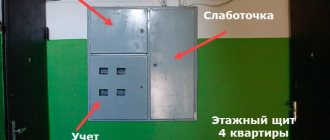Home/Housing services/RSO in housing and communal services
It is difficult for the average metropolis resident to imagine his life without the benefits of civilization. Especially without water, gas, electricity. They are provided by special organizations, abbreviated as RSO. What are RSO companies in the housing and communal services sector, what is the procedure for providing services to the population, what privileges can homeowners count on when receiving these products - we will look at this in the article.
What is RSO in housing and communal services?
RSO (Resource Supply Organizations) are legal entities and individual entrepreneurs who provide utility resources and their direct supply to places of direct consumption.
Attention! If you have any questions, you can chat for free with a lawyer at the bottom of the screen or call Moscow; Saint Petersburg; Free call for all of Russia.
In practice, suppliers act as RSO institutions in housing and communal services:
- electricity;
- heat (heating);
- gas;
- hot and cold water.
In addition, the list of RSOs in housing and communal services usually includes transport companies that supply resource elements to their destination. The category includes all kinds of associations engaged in the following areas of activity:
- ridding premises of harmful animals (rats, mice), insects (ants, midges, cockroaches, fleas);
- household waste disposal;
- installation of television antennas;
- lighting of areas adjacent to home areas.
It follows that resource supply organizations provide the population with a wide range of services.
Drinking water quality control. Responsibilities of the management company and the RSO
Management organizations that manage apartment buildings and resource supply organizations are required to carry out industrial control of the quality of drinking water by conducting laboratory studies and tests for water compliance with established requirements at least once a month.
According to paragraphs 1-3 of Article 32 of the Federal Law “On the Sanitary and Epidemiological Welfare of the Population” dated March 30, 1999 No. 52-FZ (hereinafter referred to as Law No. 52-FZ), paragraphs 2.4, 4.2 of SanPiN 2.1.4.1074-01 “Drinking water. Hygienic requirements for water quality of centralized drinking water supply systems. Quality control. Hygienic requirements for ensuring the safety of hot water supply systems" (hereinafter SanPiN 2.1.4.1074-01) legal entities operating the water supply system are entrusted with the responsibility for developing a work program for industrial control of water quality and its coordination with the center of state sanitary and epidemiological supervision in the city and area. Persons carrying out production control are responsible for the timeliness, completeness and accuracy of its implementation.
From the totality of paragraph 1 of Article 19 of Law No. 52-FZ, paragraphs 3.1, 4.5 SanPiN 2.1.4.1074-01, paragraph 2.4.1, 4.3 SP 1.1.1058-01 “Organization and conduct of production control over compliance with sanitary rules and implementation of sanitary anti-epidemiological (preventive) measures”, the quality of drinking water must comply with hygienic standards before it enters the distribution system, as well as at the water collection points of the external and internal water supply network. Industrial control of the quality of drinking water in the distribution water supply network is carried out based on microbiological and organoleptic indicators of at least 2 samples per month. Drinking water must be safe in epidemiological and radiation terms, harmless in chemical composition and must have favorable organoleptic properties.
Part 1 of Article 23 and Part 1 of Article 24 of the Federal Law on Water Supply and Sanitation No. 416-FZ stipulates that an organization providing cold and hot water supply using centralized and non-centralized (autonomous) hot water supply systems is obliged to supply subscribers with cold, hot water, meeting the established requirements.
According to Part 3 of Article 1 of the Federal Law No. 416-FZ dated December 7, 2011 (hereinafter referred to as Law No. 416-FZ), it is established that the requirements for the quality and safety of water supplied using centralized and non-centralized hot and cold water supply systems are established by the legislation of the Russian Federation in the field of ensuring the sanitary and epidemiological well-being of the population and legislation on technical regulation.
In accordance with Article 11 of Law No. 52-FZ, legal entities, in accordance with the activities they carry out, are obliged to comply with the requirements of sanitary legislation, as well as regulations and instructions of officials carrying out federal state sanitary and epidemiological supervision.
Normative base
The activities of resource supply companies are regulated by the norms of housing legislation of the Russian Federation. The new law dated April 3, 2018, Federal Law No. 59, plays an important role. According to its norms, certain changes were made to the Housing Code of Russia. They allowed owners and users of apartments in multi-apartment buildings to seek the conclusion of direct contracts with RSO for the supply of utilities, bypassing management companies. Thus, if an organization has a debt to RSO for more than two months, consumers of services have the right to refuse cooperation with it and switch to direct agreements with resource supply companies.
For your information
The legislation states that during the transition process, a standard agreement will be in force, through which standard conditions for the provision of services are regulated. The procedure in which the contract is concluded is of a notification nature, i.e. you do not have to fill out anything additional. The amount of fees for services is not subject to change, because citizens will simply deposit amounts for utility services into the account of the supplier - RSO. As for housing services, management organizations will continue to provide them.
Legal framework for the activities of the RSO
Regardless of the organizational and legal form of the RSO, all its actions are regulated:
- Sections VII and VIII of the Housing Code of the Russian Federation.
- Federal Law No. 176 of June 29, 2015 “On amendments to the Housing Code of the Russian Federation and certain legislative acts of the Russian Federation.”
- Decree of the Government of the Russian Federation No. 124 of February 14, 2012. The document sets out the rules that are mandatory when signing contracts for the supply of utilities.
- Decree of the Government of the Russian Federation No. 354 of May 6, 2011.
- Decree of the Government of the Russian Federation No. 1498 of December 26, 2021, reflecting issues of maintaining the common property of the house.
- Decree of the Government of the Russian Federation of July 21, 2008 N 549 “On the procedure for supplying gas to meet the household needs of citizens.”
- Federal Law No. 59 “On Amendments to the Housing Code of the Russian Federation” dated 04/03/2018.
According to 59-FZ, owners can enter into agreements directly with RSO if the company managing the apartment building has delayed payment to RSO for consumed resources for more than 60 calendar days.
The procedure for the exchange of information and the establishment of communications between the management company and the RSO, when switching to direct contracts, is prescribed in Decree of the Government of the Russian Federation No. 897 of September 13, 2021. The responsibilities of management organizations in the conditions of direct settlements are also recorded here.
Procedure for providing services
Within the framework of the general concept, approved by the current law, RSO ensures the supply of a utility resource to the contractor (management company), and then announces its total cost. In turn, the management company that provides this service to the consumer is fully responsible for its quality, accounting for consumed volumes, conducting recalculations, receiving relevant documents from consumers, and conducting claims work with debtors. In all these areas, the management organization also bears costs.
Tariffs for utility services are identical to the tariffs for the corresponding utility resources. That is, the income acquired by RSO in housing and communal services is formed by the cost of the supplied resource and does not include costs that are associated with the provision of utility services (utilities). As a result, a favorable scheme of interaction with clients develops for the RSO: there is no need to directly work directly with each consumer and maintain the corresponding accounting department.
However, there is another difficulty. In the lion's share of situations, the utility provider is not able to provide full payment for the utility resource received from the RSO. This is due to several practical phenomena.
- The problem of non-payments by consumers of housing and communal services is an acute problem for organizations. The fact is that the cost of these services is high, and the income of the population is low.
- Often, the provider of utility services uses the proceeds from residents for his own purposes and needs (covering other expenses, compensation for other costs, etc.).
For your information,
the current circumstances entail that the organizations in question (RSO and housing and communal services) are striving to find a work scheme in which they themselves could interact with the end consumers of utility services. This is stipulated in parts 6.3, 7.1 of Art. 155 Housing Code of the Russian Federation. Also, the Government Decree of the Russian Federation dated February 14, 2012 No. 124 provides for a different (alternative) method of payment for services.
Can RSO be a management company?
Management organization (MC) is a legal entity engaged in the operation, management and maintenance of the housing stock in connection with an agreement concluded between the owners of the property and the management company. Simply put, the management team is an intermediary involved in collecting funds from residents in order to pay for resources supplied by the RSO. That is, the latter act as subcontractors, and management companies act as contractors for residents of high-rise buildings.
In addition to this, the management organization has an obligation to maintain the housing stock in an appropriate condition (i.e., the provision of housing services). As a result, she:
- collects money from the population for capital repairs;
- carries out restoration measures in relation to common premises.
Therefore, RSOs in housing and communal services cannot in any way act as management companies, since they do not carry out such activities and do not solve utility problems.
However, resource supply companies are able to accept payments from consumers of their own services and enter into contracts for this type of activity. When the owners of apartments in a multi-storey building, who manage their building independently (for example, through a HOA), enter into a contract with the RSO, the latter assumes the role of executor and provides utilities.
In addition, the RSO in housing and communal services is the direct executor in the following situations:
- if homeowners have not yet chosen the optimal way to manage their housing stock;
- if the validity period of the previous method has expired and the new one has not yet been installed.
For your information,
all situations in which RSO is equated to a management company are stipulated within the framework of Russian government decree No. 354.
Can a resource supplying organization be a management company?
Management company as a legal entity. a person, on the basis of concluded agreements signed between her and the owners of residential premises, is responsible for the operation, maintenance and management of residential buildings.
The management company acts as an intermediary, collecting the owners’ finances as payment for utilities actually provided by the RSO.
Thus, in relation to consumers, the management company acts as a service provider (responsible for the provision of services) and a contractor, and RSO is a subcontractor that actually provides these services on the basis of an agreement signed between it and the management company.
The company also maintains the common property of a residential building and is responsible for planning and carrying out repairs in the building and its operation.
RSOs themselves cannot personally act as management companies, since the scope of their activities is limited solely to the provision of resources. They cannot take on the function of managing a residential apartment building.
Consumers have the opportunity to pay the RSO themselves, without intermediaries, for the services provided to them, but this will require the conclusion of direct contracts.
When can a resource supplying organization perform the function of a utility service provider?
There are the following ways to manage an apartment building:
- with the separate involvement of the management company;
- by creating a HOA (other association);
- direct management of the house by the owners of premises in a residential building.
The latter option assumes that the interests of consumers are represented by one of the owners of the premises in the apartment building (by general decision of the owners) or by a person by proxy, while RSO is the executor of utilities.
Simply put, RSO can be selected as a utility provider under the following circumstances:
- if the owners have not decided on a specific method of managing the residential building;
- during the period of change of management method (from the moment the old method ceases to operate until the new one is approved).
The rules established in accordance with Decree of the Government of the Russian Federation No. 354 define a limited list of cases in which a resource supplying organization can act as a provider of public services.
Watch the video. The nuances of concluding an agreement with RSO:
When can you conclude an agreement directly with RSO, bypassing housing and communal services?

Currently, consumers of utility services have the right to enter into direct agreements with RSO, bypassing housing and communal services. This is allowed in the following cases:
- if the owner lives in a private house;
- if a similar method of management was chosen as part of the general meeting;
- if the management company or homeowners association owes RSO more than three monthly amounts for utilities.
If such situations arise, property owners have the opportunity to draw up a direct contract for the supply of the necessary services with RSO. This method is associated with a number of positive aspects:
- there is no need to keep many government employees at work;
- there is no need to bear responsibility for the acts or inactions of unscrupulous neighbors who do not make payments for utility bills;
- the ability to hire contractors for a short period of time to carry out measures related to the restoration of the housing stock (and this, in turn, contributes to savings due to the high competition in this niche).
If we talk about the negative aspects that arise during the conclusion of such agreements with RSO, we can highlight the following:
- disagreements between residents can lead to the fact that a multi-storey building is no longer subject to high-quality and efficient management;
- there is a possibility of irregular payment of utility bills;
- inability to carry out major repairs using funds issued by the Fund for Assistance to Housing and Communal Services Reforms.
Pros and cons of working directly with RSO
Interaction directly with the RSO, bypassing the housing and communal services, has several positive and negative aspects. Let's look at them in the table.
| Criterion | Advantages | Flaws |
| Risk factors | The probability of the management organization going bankrupt tends to zero, since the consumer pays for the services directly | The quality of management of the housing stock may decrease due to contradictions that arise between residents |
| Distribution of funds | It is as fair as possible, since no one is responsible for non-payment of services by other residents | It is possible that payments for services will be made by residents irregularly due to the instability of incomes of the population |
| Ease of payment | Funds are deposited strictly into the RSO account, which is assigned to each household | All consumers will have to pay for the services provided in different places |
| Additional difficulties | Since there is no intermediary, settlement transactions are as simple and transparent as possible | During the calculation process, some nuances may arise that require searching for several solutions |
Direct payments to resource supply organizations
In order for direct payments to RSO to be made, it is necessary that direct agreements between consumers and the resource supplying organization be concluded with the owner of each premises in an apartment building. At the same time, tariffs and payments for the consumption of resources on premises of common property of residents and acquisitions made for these purposes will be determined directly by the RSO.
Utility bills and payments to funds will also be made in the name of the organization. This has both its positive and negative sides.
The positive aspects of concluding a contract directly include:
- A management company or HOA can focus its resources directly on managing the common property of the house;
- Each resident is responsible only for his own debts and pays only for the resources he consumes.
The negative ones include:
- for each type of resource you will have to pay in different places;
- Recalculation errors are possible.
In addition to direct contracts with the resource-providing organization, recently there has been a growing trend towards complete abandonment of both the management company and the HOA. This was largely due to the abuses committed by officials of these organizations. In 2021, the right of residents of apartment buildings to exercise full direct management of the common property of the house was legislatively established.
This attitude also has its pros and cons.
Positive features include:
- no expenses for the maintenance of the management apparatus;
- individual responsibility of each resident;
- savings on one-time engagement of contractors for certain home needs.
The existing disadvantages are:
- for each decision it is necessary to convene a meeting of residents;
- The housing and communal services support fund does not issue funds directly to residents.
Thus, a complete abandonment of the management company also does not seem to be effective for consumers, just like granting it the authority to perform public utilities. It becomes obvious that when drawing up contracts with a management company or establishing an HOA, it is necessary to limit its rights only to ensuring the management of common property and performing routine and major repairs, and entrust the remaining responsibilities to resource-supplying organizations.
In addition, this form of resource consumption is much more economical than receiving them through a management company or HOA.
Responsibility of RSO for settlements
According to current legislation, the utility service provider is directly responsible for all violations. The amount of penalties is 50% of the amount of the error. That is, when the RSO begins to assume the role of executor, it is also responsible for paying the fine. If the calculation is incorrect, a statement is written to the contractor. If there is no response, you must contact ROSPOTREBNADZOR, the court, or the prosecutor's office. Such methods help improve the quality characteristics of corporate governance and increase the transparency of settlement transactions.







